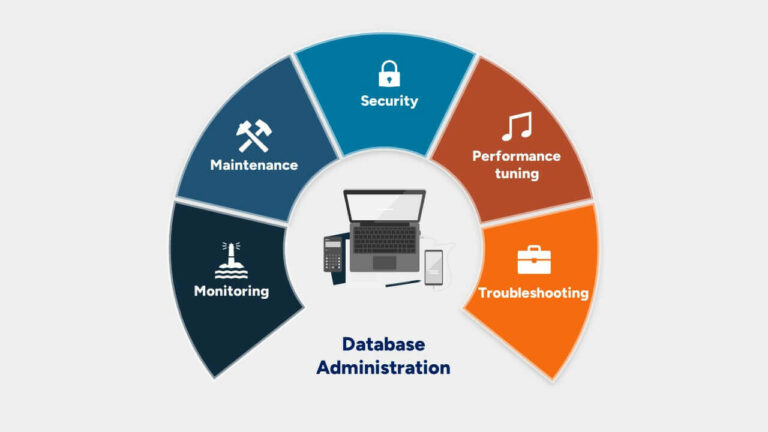Database Administration

Monitoring
- Database monitoring is an important aspect of database administration.
- To ensure that the database is running smoothly and efficiently, performance metrics need to be monitored, such as:
- response time
- CPU utilisation
- Memory consumption
- The administrator must be well aware of the specific performance metrics for the database software and platform and be able to interpret these metrics to identify potential performance problems.
Maintenance
- Regular maintenance is necessary to ensure that the database is running optimally.
- This includes tasks such as:
- updating software and firmware
- backing up and restoring
- archiving data
- The administrator must have a good understanding of the specific maintenance procedures for the database software and platform and be able to plan and execute these procedures to minimise downtime and ensure data integrity.
Security
- Ensuring the security of the database is critical.
- This includes:
- setting up user accounts and permissions
- implementing data encryption and firewalls
- monitoring the database for security breaches
- The administrator must have a good understanding of the specific security requirements for the database software and platform and be able to implement and maintain these security measures to protect sensitive data.
Performance Tuning
- Performance tuning involves making adjustments to the database to improve its performance.
- This may include:
- optimising queries
- changing indexing strategies
- adjusting memory and disc configurations.
- The administrator must have a good understanding of the specific performance tuning techniques for the database software and platform and be able to identify performance bottlenecks and implement performance-tuning solutions.
Troubleshooting
Troubleshooting is an essential part of database administration.
It involves identifying and fixing problems with the database, such as:
error
crashes
performance problems
The administrator must have a good understanding of troubleshooting techniques specific to the database software and platform and be able to diagnose and correct problems quickly and effectively to minimise downtime.
Note:
-
The process of managing database software can vary by vendor, platform and operating system. It is therefore important that you follow the vendor’s specific instructions for managing the software on your system.
-
Staff must have the necessary technical skills and knowledge to carry out the administration and management of the database software, taking into account the demanding and complex knowledge requirements of this work.
-
A professional database administration service can help ensure a smooth and successful administration process, minimise downtime and ensure optimal database performance and security.
